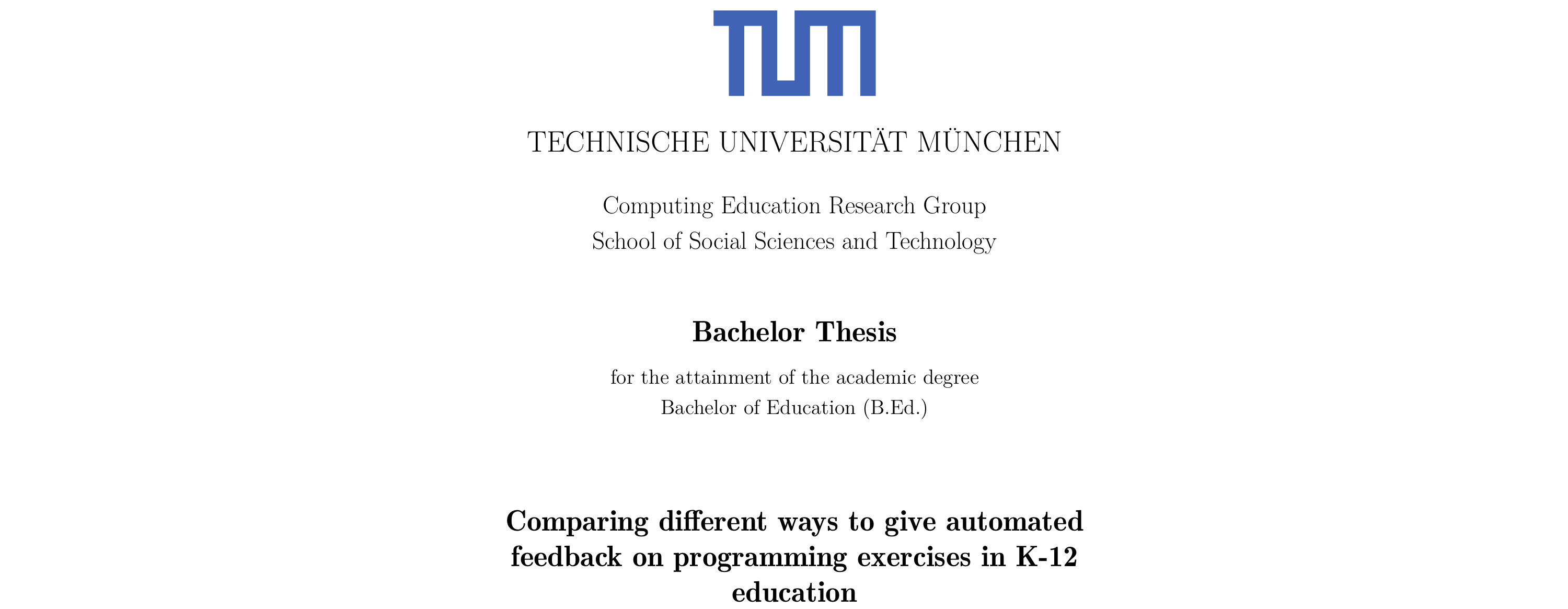Abstract
Autograding systems that provide automated feedback to the students are indispensable in most university courses. Novices are provided with tailored feedback that supports them with solving exercises and scaffolds their learning process. Several studies have been conducted on a high level in those courses, e.g., comparing overall course results and exercise scores. However, only a few considered design principles and strategies for automated feedback. Besides that, no literature is present about autograding systems in a K-12 educational context. On the other hand, the field of providing offline scaffolding and giving feedback in K-12 education has been investigated intensively. This thesis tries to close the gap between these two research fields by conducting a small study on programming exercises with TUM’s autograding system ArTEMiS with three 10th grade courses at a Bavarian grammar school. The results indicate a high impact of the exercise topics and the type of mistakes the students made on the effectiveness of feedback strategies. Unfortunately, the sample was too small to discover differences between the feedback strategies for all exercise topics and mistake types. However, the results are a good starting point for further research.
Grade
Graded 1.0 (best possible grade) by Prof. Dr. rer. nat. Tilman Michaeli
